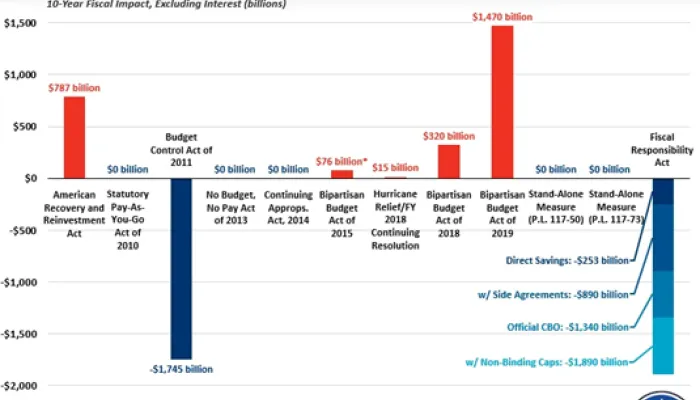Congress Avoids a Shutdown, But End-of-Year Package Could Be Costly
Lawmakers passed a continuing resolution (CR) today to sustain current funding levels and avoid a government shutdown in the final hours of the fiscal year. While the CR allows the government to continue operating until December 16, lawmakers will need to enact appropriations or another CR when this expires to prevent another shutdown – and there are many add-ons lawmakers may try to get into the package, driving up the price tag.
The following is a statement from Maya MacGuineas, president of the Committee for a Responsible Federal Budget:
It’s become routine for Congress to wait until the very last minute before an urgent deadline to spring into action. This will make time number 8 out of the last 10 years in which lawmakers have waited until the very last week of the fiscal year to pass a stop-gap measure to avoid a full or partial government shutdown. Passing a budget to fund the government is the most fundamental part of governing, and our leaders are failing—it’s as though the budget committees don’t even exist. This is the 26th consecutive year in which Congress has not funded the government on time with all appropriations bills. This is also the fifth year in a row Congress has not signed a single funding bill into law at the start of the new fiscal year. This would not fly in any company in the nation.
When lawmakers don’t bother to set spending priorities, it shows how truly broken the federal budget process is. While it seems both chambers can’t agree on much these days, they should at least be able to agree on this: we should not run our country without a budget.
There is a very real risk that lawmakers will try to add more spending, tax cuts, and borrowing as a part of the end of the year package; this would be a tremendous mistake. Given that the debt has grown by more than $1.1 trillion since January, legislation and executive actions in 2022 will add $1.9 trillion in new debt over the next decade, and surging inflation in a stalling economy, lawmakers should pledge to – at the very least – not add any more to the debt this year. Asking our politicians to refrain from new borrowing for three months is a baby step of a no-brainer – anyone unwilling to agree to that will be part of making our debt and inflationary problems worse.
###
For more information, please contact Kim McIntyre, Director of Media Relations, at mcintyre@crfb.org


